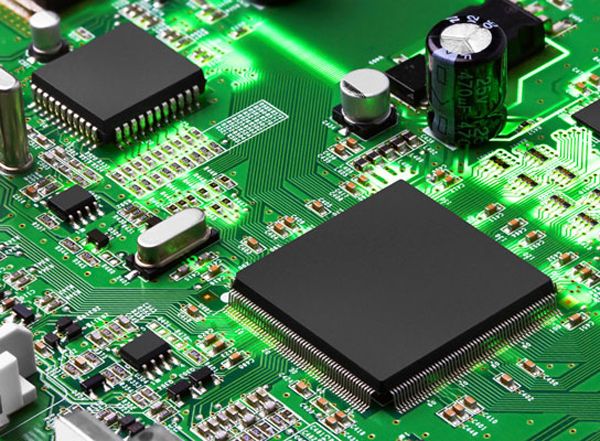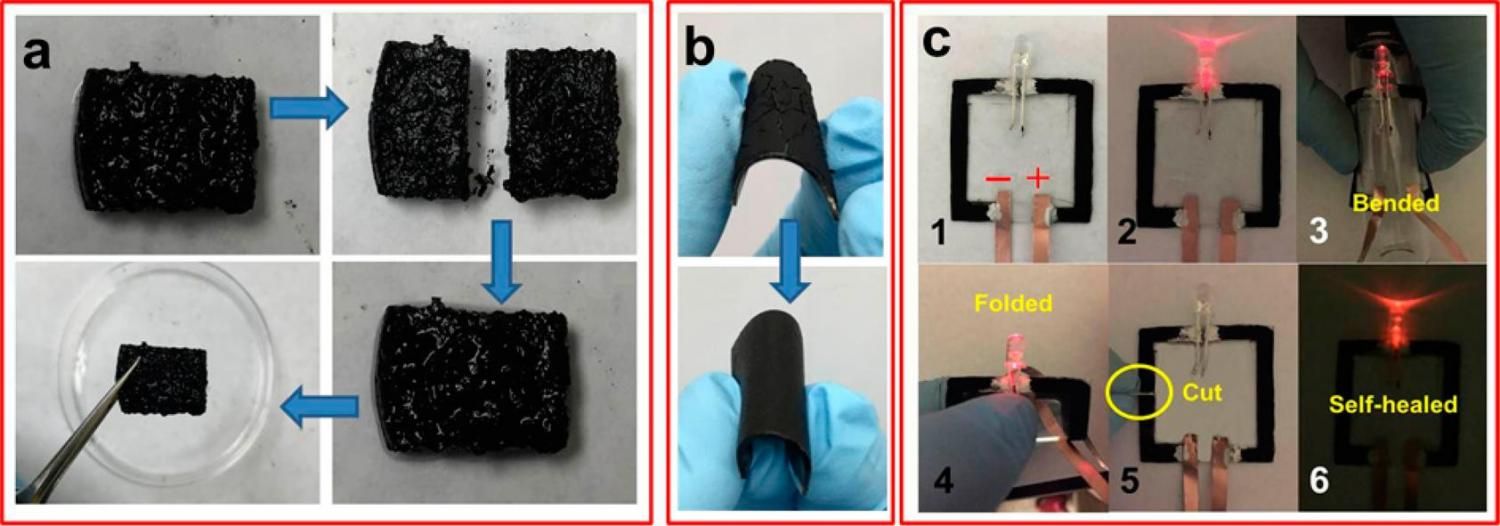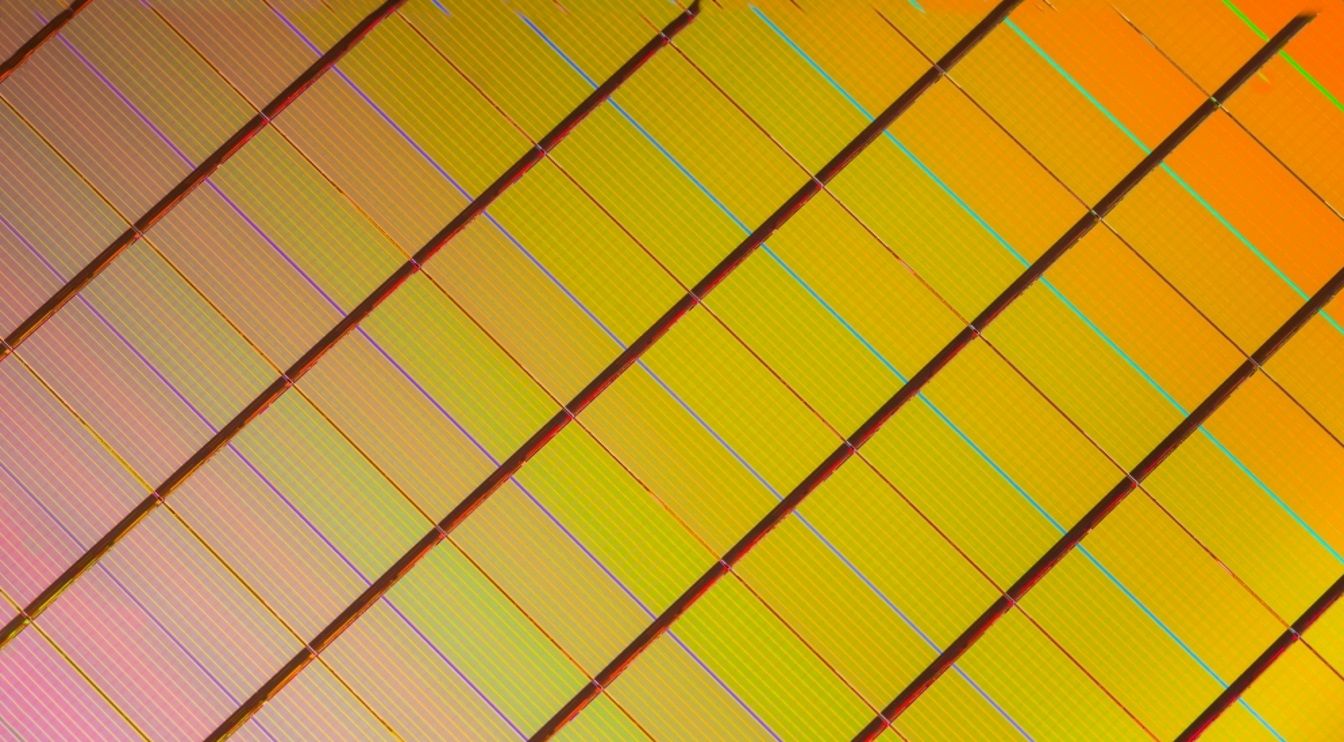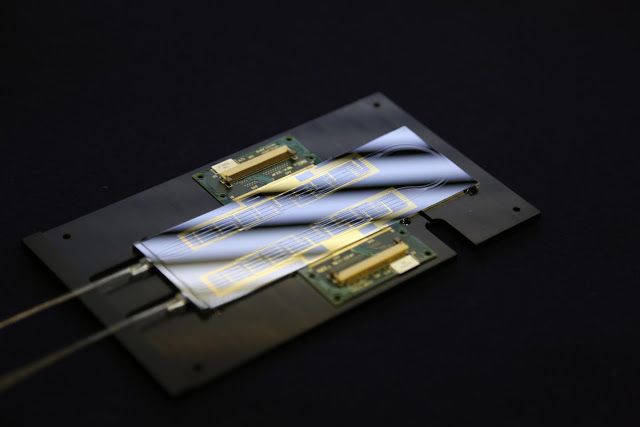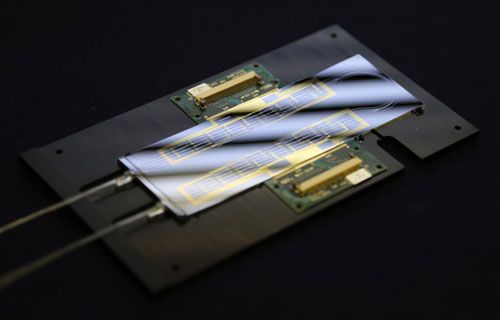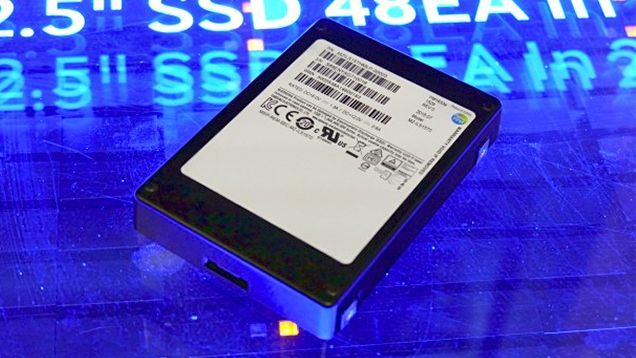Archive for the ‘electronics’ category: Page 103
Sep 4, 2015
Squishy transistors—a device concept for fast, low-power electronics
Posted by Shailesh Prasad in categories: computing, electronics
An international team of researchers from the National Physical Laboratory (NPL), IBM, the University of Edinburgh and Auburn University have shown that a new device concept — a ‘squishy’ transistor — can overcome the predicted power bottleneck caused by CMOS (complementary metal-oxide-semiconductor) technology reaching its fundamental limits.
Moore’s law predicted that the number of transistors able to fit on a given die area would double every two years. As transistor density doubled, chip size shrank and processing speeds increased. This march of progress led to rapid advances in information technology and a surge in the number of interconnected devices. The challenge with making anything smaller is that there are fundamental physical limits that can’t be ignored and we are now entering the final years of CMOS transistor shrinkage.
Furthermore, this proliferation is driving an increase in data volume, accompanied by rising demands on energy to process, store and communicate it all; as a result, IT infrastructure now draws an estimated 10 % of the world’s electrical power. Previous efforts have focused on remediation by reducing the amount of energy per bit. However, soon we will hit a power barrier that will prevent continued voltage scaling. The development of novel, low-power devices based on different physical principles is therefore crucial to the continued evolution of IT.
Aug 29, 2015
Apple, Boeing, MIT, and more partner with Pentagon to improve flexible electronics
Posted by Shailesh Prasad in categories: electronics, health, military

https://youtube.com/watch?v=IYfD4sXahJI
A consortium of top tech companies, laboratories, and universities is partnering with the Department of Defense to improve the manufacturing of flexible electronics, which could one day end up in aircraft, health monitors, military tools, or consumer electronics like wearables. The department is awarding the consortium, known as the FlexTech Alliance, $75 million over five years, with other sources, including universities, non-profits, and state and local governments, contributing an additional $96 million.
The consortium is composed of well over 100 organizations, with key partners including Apple, Boeing, GE, GM, Lockheed Martin, Motorola Mobility, and Qualcomm, among many others. Partnering universities include Cornell, Harvard, Stanford, NYU, and MIT, also among many others.
Aug 27, 2015
Electrical circuit made of gel can repair itself
Posted by Early Boykins III in categories: electronics, energy, materials, robotics/AI
(Phys.org)—Scientists have fabricated a flexible electrical circuit that, when cut into two pieces, can repair itself and fully restore its original conductivity. The circuit is made of a new gel that possesses a combination of properties that are not typically seen together: high conductivity, flexibility, and room-temperature self-healing. The gel could potentially offer self-healing for a variety of applications, including flexible electronics, soft robotics, artificial skins, biomimetic prostheses, and energy storage devices.
The researchers, led by Guihua Yu, an assistant professor at the University of Texas at Austin, have published a paper on the new self-healing gel in a recent issue of Nano Letters.
The new gel’s properties arise from its hybrid composition of two gels: a supramolecular gel, or ‘supergel’, is injected into a conductive polymer hydrogel matrix. As the researchers explain, this “guest-to-host” strategy allows the chemical and physical features of each component to be combined.
Aug 21, 2015
Physicists Unveil First Quantum Interconnect
Posted by Shailesh Prasad in categories: computing, electronics, physics, quantum physics
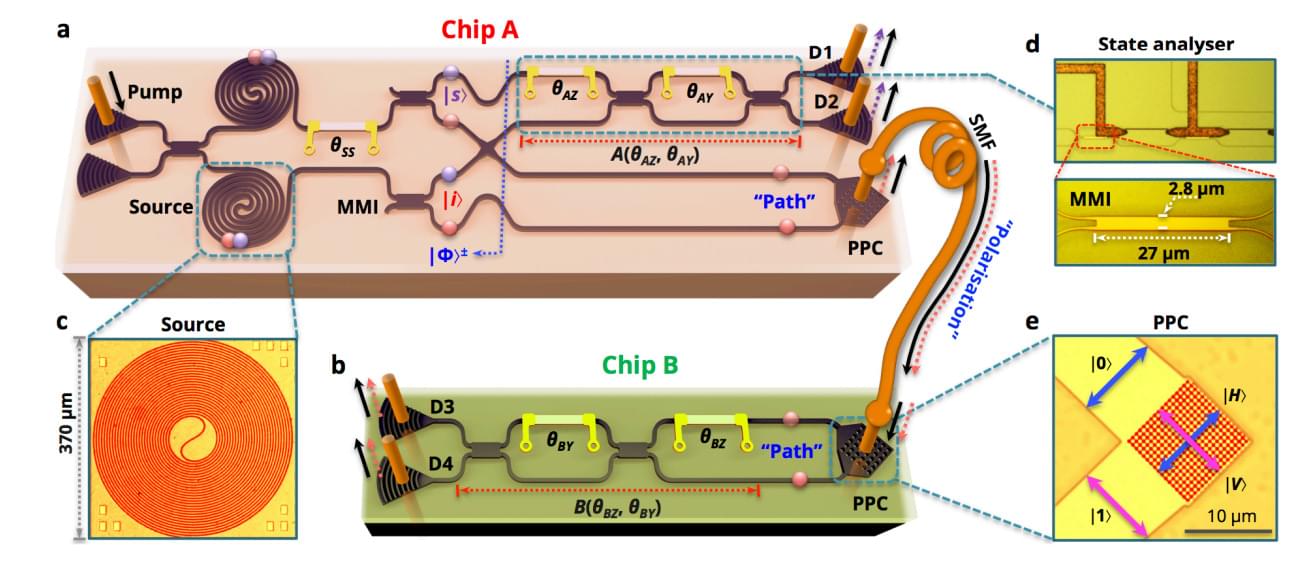
One of the unsung workhorses of modern technology is the humble interconnect. This is essentially a wire or set of wires that link one part of an electronic system to another. In ordinary silicon chips, interconnect can take up most of the area of a chip; and the speed and efficiency with which information can travel along these interconnects, is a major limiting factor in computing performance.
So it’s no wonder that physicists and engineers are creating new generations of interconnect that will become the backbone of information processing machines of the future.
Aug 19, 2015
Intel boosts SSD performance up to 7x with new Optane family
Posted by Shailesh Prasad in categories: computing, electronics
Intel unveiled its new Optane line of SSDs at IDF this week, with a focus on high performance and endurance. The drives should be shipping to the consumer market in 2016.
Aug 15, 2015
The Toil Toward Quantum Computers Just Turned Into a Sprint
Posted by Phillipe Bojorquez in categories: biotech/medical, computing, electronics, quantum physics, supercomputing
A new optical chip that can process photons in a dizzying number of infinite ways has been developed by two research teams. Researchers from the University of Bristol in the UK and Nippon Telegraph and Telephone in Japan (NTT) are behind the breakthrough in quantum computing. The means to solve daunting problems such as the ability to design new life-saving drugs; perform advanced calculations that are a step or two beyond even supercomputers; and analyze weather patterns for more accurate forecasting has just received a major boost.
A group of researchers have pulled off a staggering feat; they’ve developed a silicon-based optical chip that is fully reprogrammable and can process photons in every way imaginable and then some, reports Phys.org.
Prof. Jeremy O’Brien, the Director of the Centre for Quantum Photonics at Bristol University where researchers masterminded the development of the chip, said:
Aug 14, 2015
Reprogrammable optic chip has complete flexibility in processing of photons and is a pathway to quantum computing
Posted by Shailesh Prasad in categories: biotech/medical, computing, electronics, quantum physics
Researchers from the University of Bristol in the UK and Nippon Telegraph and Telephone (NTT) in Japan, have developing an optical chip that can process photons in an infinite number of ways.
It’s a major step forward in creating a quantum computer to solve problems such as designing new drugs, superfast database searches, and performing otherwise intractable mathematics that aren’t possible for super computers.
The fully reprogrammable chip brings together a multitude of existing quantum experiments and can realise a plethora of future protocols that have not even been conceived yet, marking a new era of research for quantum scientists and engineers at the cutting edge of quantum technologies.
Aug 14, 2015
New optical chip lights up the race for quantum computer
Posted by Klaus Baldauf in categories: computing, electronics, quantum physics
The microprocessor inside a computer is a single multipurpose chip that has revolutionised people’s life, allowing them to use one machine to surf the web, check emails and keep track of finances.
Now, researchers from the University of Bristol in the UK and Nippon Telegraph and Telephone (NTT) in Japan, have pulled off the same feat for light in the quantum world by developing an optical chip that can process photons in an infinite number of ways.
Aug 13, 2015
Wow, Samsung’s New 16 Terabyte SSD Is the World’s Largest Hard Drive
Posted by Shailesh Prasad in category: electronics
Gone are the days when you have to sacrifice size for speed with an SSD drive in your laptop. At the Flash Memory Summit in California, Samsung just revealed a new 2.5-inch SSD drive with an incredible 16 terabytes of storage. It’s not only the world’s largest SSD—it’s actually now the world’s largest hard drive, period.
So how on Earth did Samsung pull off a such an incredible feat? Inside the PM1633a SSD you’ll find stacks and stacks of the company’s latest and greatest 256Gbit NAND flash dies, which are twice the capacity of the 128Gbit NAND flash dies currently in use. According to Ars Technica’s calculations, there should be somewhere around 480 to 500 of the dies inside Samsung’s new SSD. Which is even more impressive given it still fits inside a 2.5-inch housing, although it’s probably a lot taller than most.
The answer to the million dollar question about the new 16TB SSD—how much does it cost?—is thankfully not a million dollars. However, the first units will probably sell in the range of $5,000 to $7,000 and will be targeted for use in servers and other enterprise applications. But over time, as with all technology, the massive SSDs will certainly drop in price and trickle down to consumers—just in time for our storage demands spiking thanks to 4K movie downloads.

